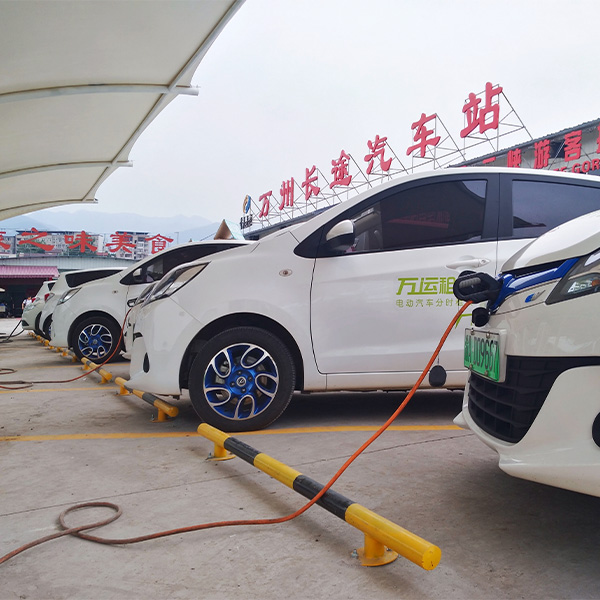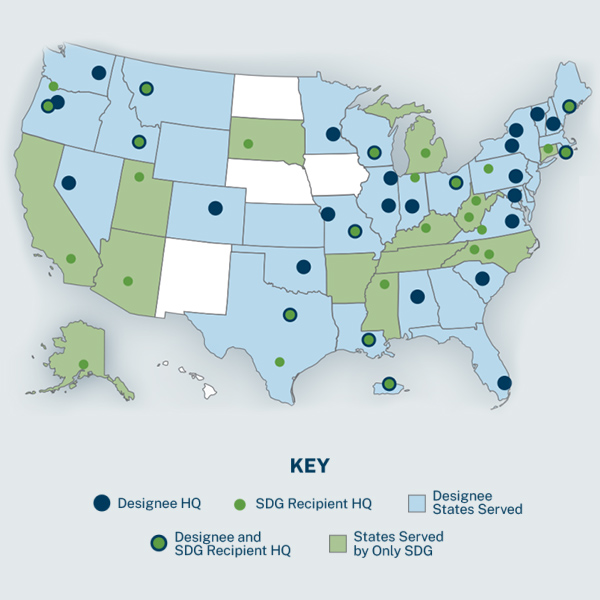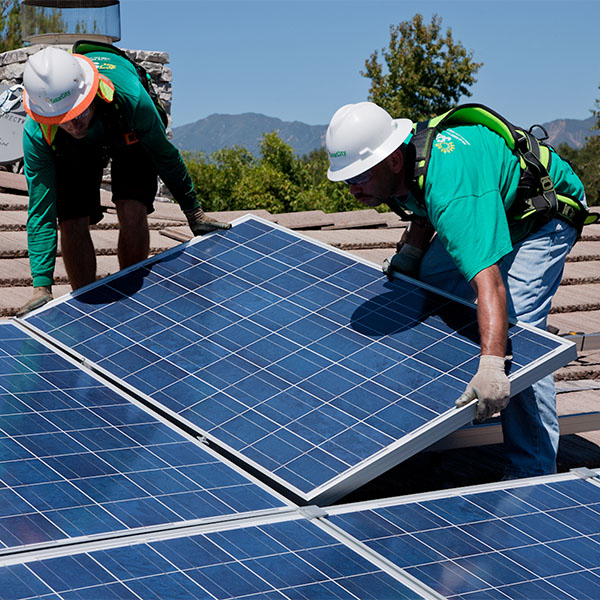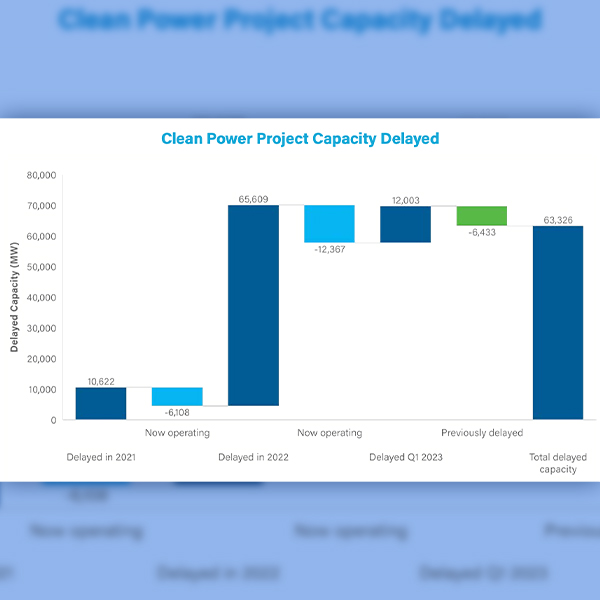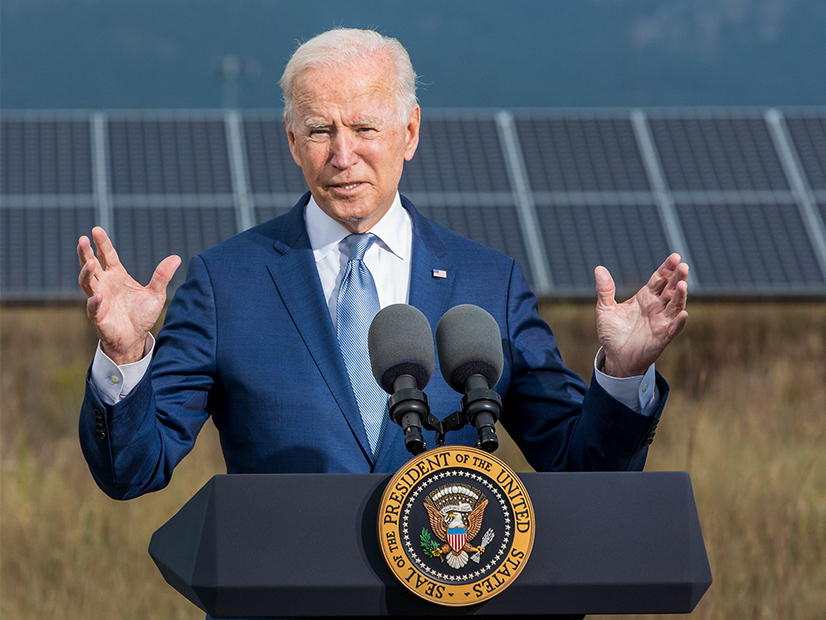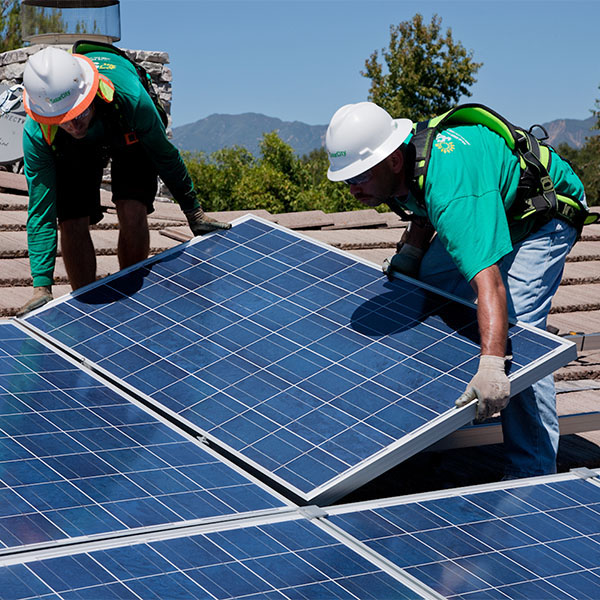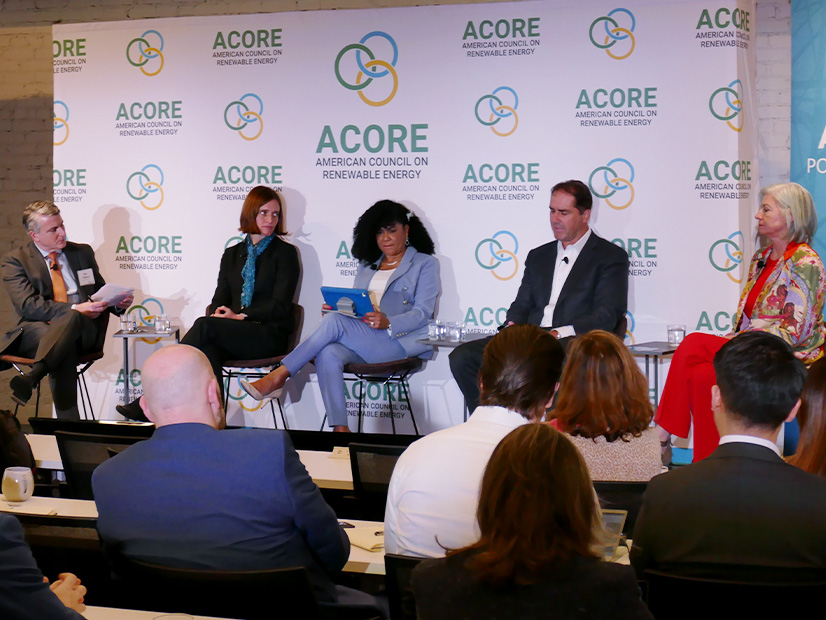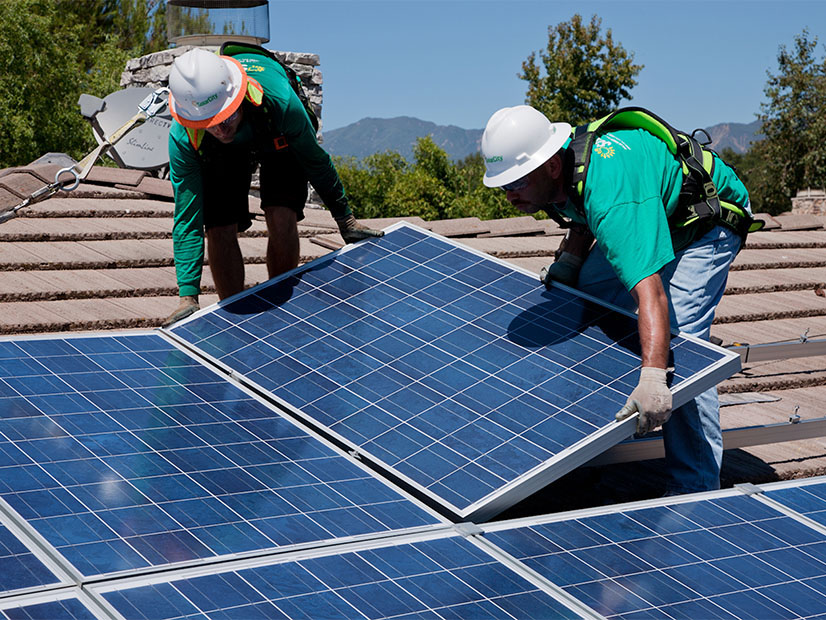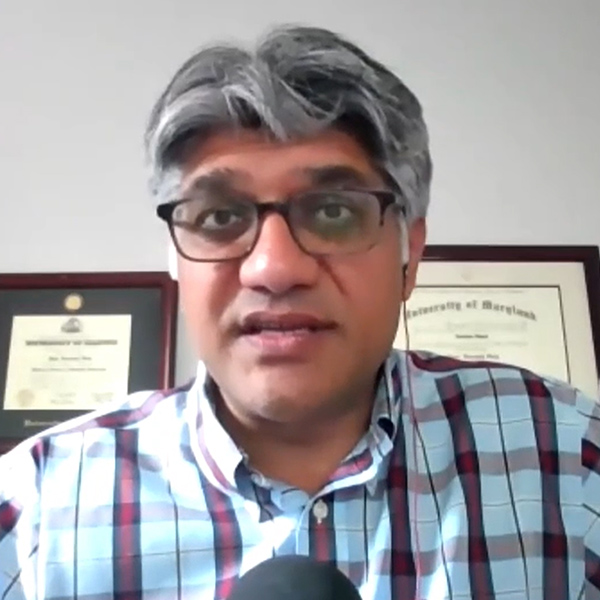U.S. Department of Commerce
The U.S. Supreme Court overturned the doctrine of Chevron deference to federal agencies in interpreting statutes when issuing rules, ending 40 years of legal precedent.
President Joe Biden directed the U.S. trade representative to slap steep new tariffs on Chinese goods, including semiconductors, solar cells, battery components and electric vehicles.
The White House and Department of Commerce announced 31 regional tech hubs, which include some aimed at furthering the energy transition, in an effort to stand up globally competitive industries around the country.
The Commerce Department's ruling highlights the conflict between U.S. solar industry's ambitious targets for market growth and its ongoing dependence on China for key components.
New renewable deployments were down in the first quarter this year as the industry continues to face headwinds, the American Clean Power Association said.
President Biden vetoed a resolution to end the moratorium on solar tariffs imposed on equipment produced in Cambodia, Malaysia, Thailand and Vietnam.
Biden plans to veto a joint resolution rolling back a two-year moratorium on tariffs on solar panels and cells from four Southeast Asian countries.
Experts explained to ACORE's Policy Forum what hurdles remain to be overcome after Congress passed the most ambitious clean energy legislation last year.
The Commerce Dept. issued a preliminary decision that may extend tariffs on solar components imported from companies in Cambodia, Malaysia, Thailand & Vietnam.
Jigar Shah has taken the Energy’s Loan Programs Office from a largely dormant part of DOE to an office processing applications for loans totaling $86.5 billion.
Want more? Advanced Search

